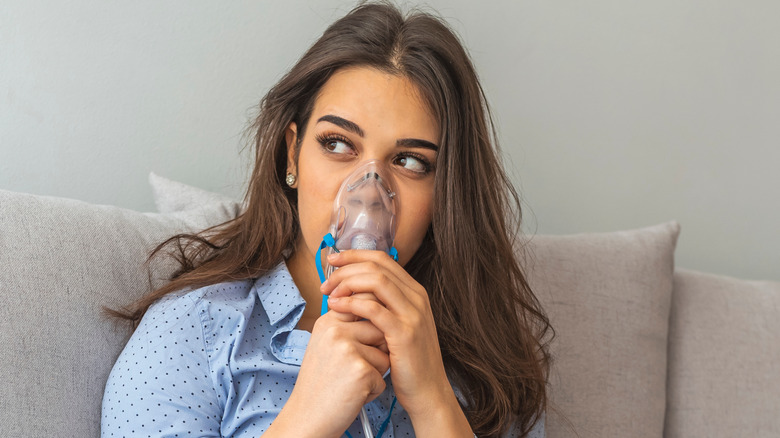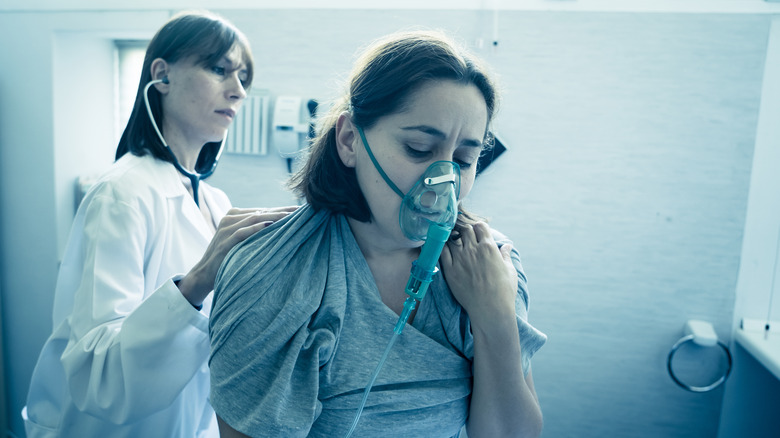Here's Why You Shouldn't Inhale Hydrogen Peroxide To Treat COVID-19
Many dangerous and unproven treatments for COVID-19 have circulated on social media throughout the pandemic, but the latest has public health experts urgently sounding the alarm. Last week, the Asthma and Allergy Foundation of America (AAF) issued a warning about a concerning new trend that has people inhaling hydrogen peroxide.
According to the AAF, some netizens on TikTok, Facebook, and Twitter are putting hydrogen peroxide into nebulizers (small breathing devices that turn liquid asthma medication into mist) and inhaling it in an ill-advised attempt to treat and prevent COVID-19. "DO NOT put hydrogen peroxide into your nebulizer and breathe it in. This is dangerous!" the AAFA said in a statement. "It is not a way to prevent nor treat COVID-19."
While it is unclear exactly where this trend originated, public health experts agree it is incredibly dangerous and it is not a proven or effective treatment for COVID-19 or any other disease.
Inhaling hydrogen peroxide can damage your lungs
Ingesting or inhaling hydrogen peroxide can be toxic and may even cause damage to your lungs. After all, hydrogen peroxide is not meant for human consumption (via Self). It's an antiseptic and disinfectant that is often used to clean wounds and sterilize household surfaces. Ingesting or inhaling any amount of it can be quite dangerous.
According to the Agency for Toxic Substances and Disease Registry (ATSDR), inhaling household hydrogen peroxide can result in respiratory irritation, while industrial-strength hydrogen peroxide can lead to severe pulmonary irritation. "Hydrogen peroxide is a free radical," Dr. Jamie Alan, an associate professor of pharmacology and toxicology at Michigan State University, told Health. "If it's inhaled, it goes to the lungs where it can damage cell membranes. It can even get into the cells once the cell membranes are compromised and it can damage DNA." Inhaling too much hydrogen peroxide may even result in pulmonary edema, a condition characterized by fluid in the lungs.
It's important to steer clear of any unproven treatment methods trending on social media and simply talk to your primary care provider or medical health professional instead. They will go over your options and discuss safe and effective treatments for COVID-19, like monoclonal antibodies (via FDA). However, if you don't have COVID-19 and are looking to protect yourself from the virus, you can get any one of the three available COVID-19 vaccines, all of which are free of charge.


